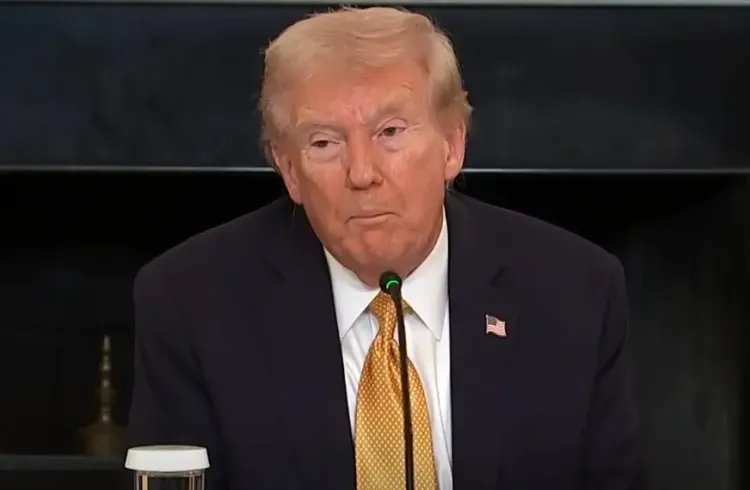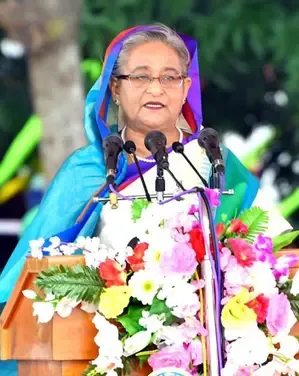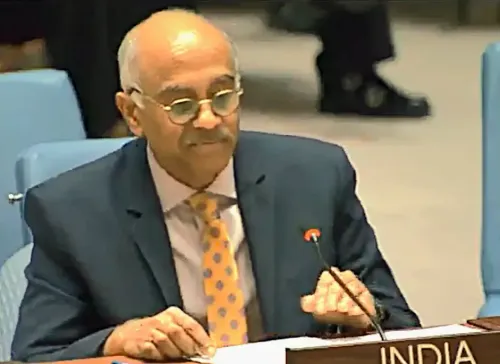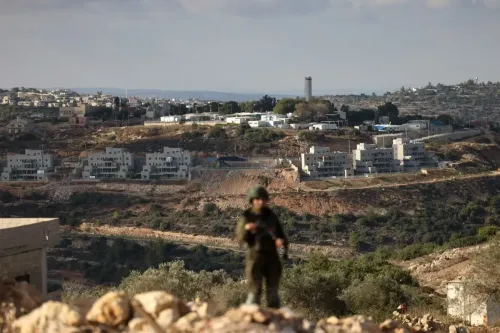Why Did Trump Halt the Plan to Send Federal Troops to San Francisco?

Synopsis
Key Takeaways
- Trump's decision to pause troop deployment indicates a shift in strategy.
- Local leaders played a crucial role in influencing this decision.
- The emphasis is on community recovery over militarization.
- Ongoing federal cooperation is welcomed in addressing crime.
- Monitoring of the situation in San Francisco will continue.
Washington, Oct 24 (NationPress) US President Donald Trump has declared a halt to his plans for sending federal troops to San Francisco, following conversations with the city's Mayor, Daniel Lurie, and requests from prominent leaders in the technology sector.
In a message shared on Truth Social, Trump revealed on Thursday that the federal government had been poised to 'surge' into San Francisco on Saturday but decided to change direction after receiving input from 'friends' in the region.
Among those who reached out, he mentioned Nvidia CEO Jensen Huang and Salesforce CEO Marc Benioff.
'The residents of San Francisco have united in their efforts to combat crime, especially since we started to address that challenging issue,' Trump stated.
'Great individuals like Jensen Huang, Marc Benioff, and several others have expressed their belief that San Francisco's future is bright. They desire to give it a chance. Thus, we will not proceed with the surge into San Francisco on Saturday.'
Mayor Lurie confirmed that he had a conversation with Trump late Wednesday.
'I communicated to him what I have told our citizens: San Francisco is on the upswing,' Lurie remarked in a statement.
He further noted that while the city is open to ongoing federal collaboration with entities such as the Federal Bureau of Investigation and Drug Enforcement Administration to tackle drug issues, 'the presence of military and militarized immigration enforcement in our city will impede our recovery.'
White House Press Secretary Karoline Leavitt indicated that this decision reflects Trump's readiness to collaborate 'with anyone across party lines to take the proper steps in rejuvenating America's cities.'
This situation is being closely monitored in the San Francisco Bay Area, which is home to the second-largest Indian diaspora in the US and serves as a key global technology hub.
Thousands of professionals of Indian descent are employed in Silicon Valley, including at firms like Nvidia and Salesforce, whose leaders reportedly influenced Trump's choice to retract the troop deployment.
Leavitt clarified that the operation is 'paused', however, the administration will remain vigilant in 'observing San Francisco closely.'
Democratic leaders, including California Governor Gavin Newsom and Lurie, had spent weeks preparing for the impending possibility of federal forces being dispatched to San Francisco.
In June, the deployment of National Guard troops to Los Angeles in response to protests triggered by immigration enforcement raids faced strong opposition.
In August, the Trump administration sent the National Guard to Washington, D.C. to address crime, and previously threatened to dispatch troops to additional Democratic-led cities.
In late September, Trump announced his intention to order troops to Portland, labeling the city as 'war-ravaged', but a federal judge temporarily blocked the deployment.









